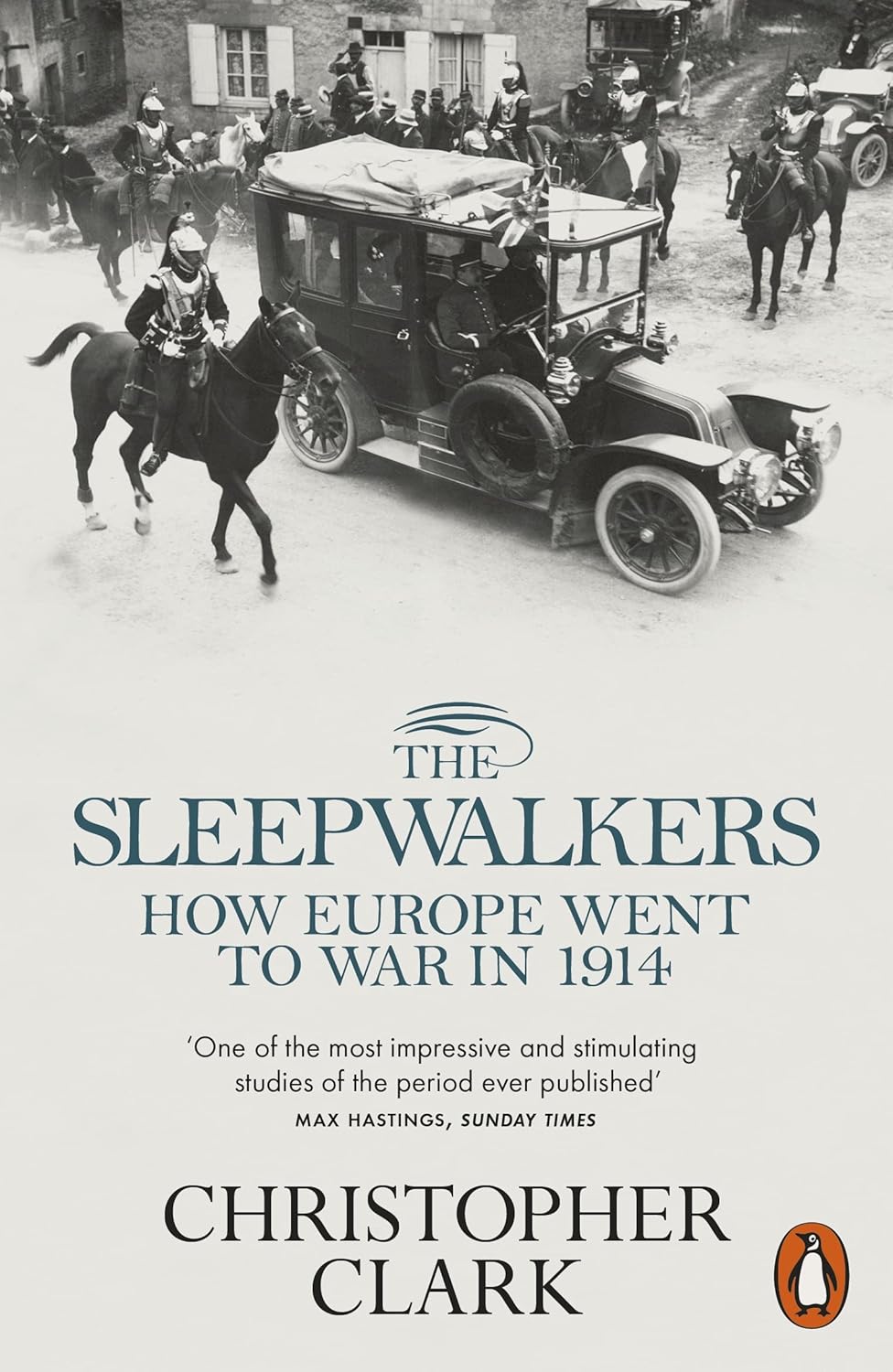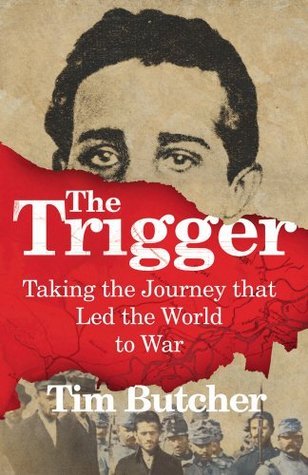
The Sleepwalkers: How Europe Went to War in 1914
Book Description
A tense countdown sets the stage for one of history's deadliest conflicts. Alexander, Franz, and a web of political leaders become unwitting puppets in a game of alliances that spirals out of control. Nationalism surges as diplomacy crumbles, sending nations on a collision course toward war. In a world teetering between peace and chaos, choices borne of fear and ambition ignite the spark of a global inferno. Christopher Clark unveils the gripping dynamics that led Europe into a cataclysmic conflict—a haunting tale of ambition, rivalry, and misjudgment. What happens when leaders sleepwalk into destiny?
Quick Book Summary
"The Sleepwalkers: How Europe Went to War in 1914" by Christopher Clark offers a compelling re-examination of the intricate events, alliances, and political miscalculations that led to World War I. Clark contends that the catastrophe was not preordained, but the product of a series of short-sighted decisions by European leaders—"sleepwalkers"—who stumbled into war without fully grasping its magnitude. Through detailed portraits of nations and their political actors, Clark dismantles the notion of singular blame, revealing a complex, interconnected web of national ambitions, fears, and rivalries. The book emphasizes how nationalism, militarism, and failed diplomacy collided to ignite global conflict, underscoring the importance of human agency and contingency in history's most pivotal moments.
Summary of Key Ideas
Table of Contents
The Complexity of Causes and Responsibility
Clark begins by challenging the traditional view that Germany bore sole responsibility for World War I. He meticulously reconstructs the prewar European landscape, highlighting the tangled alliances, political maneuverings, and rising nationalism that prevailed among the powers. By presenting a panoramic view of Austria-Hungary, Serbia, Russia, France, Germany, and Britain, Clark illustrates how each nation was driven by its own insecurities, ambitions, and historical grievances. This approach underscores that no single country acted in isolation—all were caught in a web of mutual suspicion and competition.
The Fragile Balance of Alliances and Diplomacy
Moving deeper, Clark examines the role of diplomacy and the delicate system of alliances that functioned as both a deterrent and a trap. The intricate agreements, secret understandings, and treaties between great powers were intended to maintain peace but ultimately heightened mistrust and facilitated a swift slide into conflict. Clark details how decision-makers frequently misunderstood each other, and how efforts to de-escalate crises often produced the opposite result. The book dissects critical moments—like the July Crisis—where miscommunication and rigid commitments exacerbated an already volatile situation.
The Role of Nationalism and Public Opinion
A crucial theme is the explosive effect of nationalism and the mobilization of public opinion. Clark demonstrates how nationalist fervor, especially in the Balkans, turned local disputes into continental flashpoints. Newspapers, political parties, and ideological fervor pressured leaders, reducing their willingness to compromise. In states like Serbia and Austria-Hungary, nationalist ideologies drove radical groups and government policies, making the assassination of Archduke Franz Ferdinand both a symptom and a catalyst of deeper tensions.
The Influence of Individual Leaders and Decision-Making
Clark then focuses on the personalities and decision-making processes of the key actors. From Kaiser Wilhelm II to Tsar Nicholas II and the French and Serbian leadership, the reader sees how personal ambitions, rivalries, and flawed judgments influenced the path to war. None were outright villains or warmongers, but their collective missteps, failures to comprehend each other, and inability to foresee the consequences of partial mobilizations and ultimatums contributed to the disaster.
The Escalation from Crisis to Catastrophe
Finally, the book portrays the last weeks before war as a tragic acceleration from manageable crisis to unstoppable catastrophe. Clark presents the leaders as “sleepwalkers”—reactive, often confused, propelled by inertia and routine as much as by grand strategy. By stressing the contingency of events and absence of clear intent for continental war, Clark concludes with a powerful warning: disasters of such magnitude can result not only from deliberate aggression, but from a concatenation of blunders, illusions, and missed opportunities.
Download This Summary
Get a free PDF of this summary instantly — no email required.





